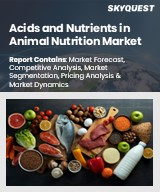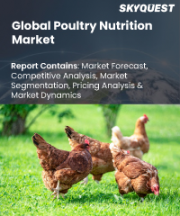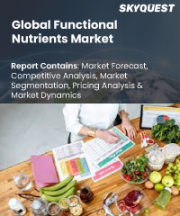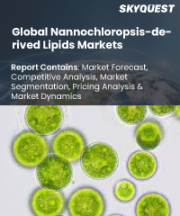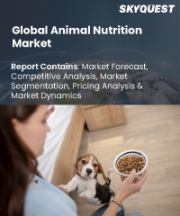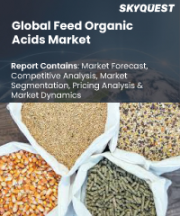
|
시장보고서
상품코드
1813267
DNA 기반 애완동물 영양 시장 예측(-2032년) : 제품별, 애완동물 유형별, 유통 채널별, 용도별, 최종사용자별, 지역별 세계 분석DNA-Based Pet Nutrition Market Forecasts to 2032 - Global Analysis By Product (Genetic Testing Kits for Pets, Personalized Pet Meal Plans, and Nutraceutical Supplements), Pet Type, Distribution Channel, Application, End User and By Geography |
||||||
Stratistics MRC에 따르면 세계의 DNA 기반 애완동물 영양 시장은 2025년에 4억 5,328만 달러를 차지하며 예측 기간 중 12.2%의 CAGR로 성장하며, 2032년까지 10억 1,466만 달러에 달할 것으로 예상되고 있습니다.
DNA 기반 반려동물 영양은 반려동물의 고유한 DNA 구조를 평가하기 위해 유전자 분석을 수행하는 맞춤형 식단 전략입니다. 유전적 특성, 식이 불내성, 대사 기능, 건강 민감도를 파악하여 특별한 영양 계획을 개발할 수 있습니다. 이 접근 방식을 통해 수의사와 보호자는 정확한 영양 지원을 제공하고, 더 나은 소화를 촉진하고, 질병 위험을 줄이고, 반려동물의 전반적인 건강, 수명 및 삶의 질을 향상시킬 수 있습니다.
반려동물의 인간화 및 맞춤 영양에 대한 수요 증가
반려동물이 점점 더 중요한 가족 구성원으로 자리 잡으면서 보호자들은 개별적인 관리를 통해 반려동물의 건강과 행복을 우선시하고 있습니다. 이러한 변화로 인해개 품종별 필요와 유전적 소인에 맞는 DNA 기반 영양 계획에 대한 관심이 높아지고 있습니다. 소비자들은 알레르기, 체중관리, 만성질환에 대응하는 맞춤형 식단을 원하고 있습니다. 프리미엄 애완동물 사료 브랜드와 웰니스 플랫폼의 등장은 이러한 진화하는 사고방식을 반영합니다. 디지털 툴와 모바일 앱은 반려동물 보호자에게 맞춤형 영양 관리를 더욱 친숙하고 매력적으로 만들고 있습니다. 전반적으로 인간과 반려동물 사이의 정서적 유대감이 과학적 근거가 있는 맞춤형 식단 솔루션에 대한 수요를 촉진하고 있습니다.
DNA 검사 및 맞춤형 영양 계획에 드는 고가의 비용
많은 반려동물 보호자들은 유전자 키트와 지속적인 정액제 영양 서비스에 드는 초기 비용에 대해 고민하고 있습니다. 보험 적용 범위가 제한적이고 상환 옵션이 없습니다는 점이 시장 침투를 더욱 제한하고 있습니다. 신흥 국가에서는 경제적인 문제가 더 두드러져 보급이 늦어지고 있습니다. 또한 수의사 진찰의 필요성이 총 비용에 추가되므로 예산을 중시하는 소비자에게는 실행 가능성이 낮습니다. 이러한 경제적 제약은 확장성을 저해하고 고급 영양 솔루션에 대한 접근성을 제한합니다.
고급 영양학적 인사이트를 위한 AI와 빅데이터의 통합
AI와 데이터 분석의 기술 발전은 반려동물의 영양학에 혁명을 일으키고 있습니다. 알고리즘은 현재 유전자 마커, 라이프스타일 입력, 건강 데이터를 분석하여 초개인화된 식단 계획을 생성 할 수 있습니다. 각 플랫폼은 머신러닝을 활용하여 반려동물의 행동과 피드백 루프를 기반으로 지속적으로 추천을 개선하고 있습니다. 웨어러블 기기 및 스마트 피더와의 통합을 통해 실시간 모니터링 및 적응형 영양 섭취가 가능합니다. 클라우드 기반 시스템을 통해 원활한 업데이트와 수의사 전문가와의 원격 상담이 가능합니다. 이러한 혁신을 통해 반려동물의 건강 결과와 사용자 경험을 향상시키는 확장 가능한 데이터베이스 솔루션을 제공합니다.
부정확하거나 오해의 소지가 있는 유전자 검사 결과의 위험성
반려동물 DNA 검사의 신뢰성은 검사기관에 따라 크게 차이가 나기 때문에 데이터의 정확성에 대한 우려를 낳고 있습니다. 유전자 검사 결과를 잘못 해석하면 부적절한 식단 선택과 건강 위험으로 이어질 수 있습니다. 표준화된 검사 프로토콜과 규제 감독의 부재가 이 문제를 더욱 악화시키고 있습니다. 충분한 과학적 검증 없이 결과를 과도하게 약속하는 플랫폼도 있으며, 소비자의 신뢰를 떨어뜨립니다. 품종 식별이나 건강 소인의 오류는 잘못된 개입을 초래할 수 있습니다. 이러한 위협은 DNA 기반 영양 서비스에서 엄격한 검증, 투명성, 전문가 지도의 필요성을 강조하고 있습니다.
COVID-19의 영향
팬데믹은 반려동물 양육을 가속화하고, 정서적 유대감을 강화하며, 반려동물의 건강에 대한 투자를 촉진했습니다. 록다운으로 인해 개인화된 반려동물 사료와 DNA 키트의 온라인 구매가 증가했습니다. 공급망의 혼란으로 인해 일시적으로 제품 재고 상황과 납기에 영향을 미쳤습니다. 원격 컨설팅과 정기 구매형 영양 서비스를 제공하는 디지털 플랫폼이 확산되고 있습니다. 반려동물 보호자들이 회복력 있고 미래지향적인 케어 모델을 추구하는 가운데, DNA 기반 영양은 팬데믹 이후 반려동물 건강의 중요한 축으로 부상하고 있습니다.
예측 기간 중 개별화된 반려동물 식사 계획 부문이 가장 큰 시장으로 성장할 것으로 예측됩니다.
개별화된 반려동물 식사 계획 부문은 예측 기간 중 가장 큰 시장 점유율을 차지할 것으로 예측됩니다. 반려동물 보호자들은 알레르기, 소화기 질환, 체중 관리 등에 대응하는 맞춤형 사료를 선택하는 경향이 강해지고 있습니다. 구독 모델과 소비자 직접 판매 플랫폼은 맞춤형 영양에 대한 접근을 단순화하고 있습니다. 원료 조달과 배합의 발전으로 제품의 품질과 효능이 향상되고 있습니다. 유전적 인사이트를 식단 계획에 통합하는 것은 표준 기능이 되고 있습니다. 개인화가 주류로 자리 잡으면서 이 부문은 DNA 기반 반려동물 영양제 시장을 지원할 것으로 보입니다.
반려동물 웰니스 스타트업 및 플랫폼 부문은 예측 기간 중 가장 높은 CAGR을 나타낼 것으로 예측됩니다.
예측 기간 중 반려동물 웰니스 스타트업 및 플랫폼 부문이 가장 높은 성장률을 보일 것으로 예측됩니다. 혁신에는 모바일 앱, AI를 활용한 진단, 구독형 DNA 검사 키트 등이 포함됩니다. 이러한 민첩성은 소비자의 취향과 새로운 동향에 빠르게 적응할 수 있게 해줍니다. 동물병원 네트워크 및 E-Commerce 플랫폼과의 전략적 파트너십을 통해 도달 범위를 넓혀가고 있습니다. 반려동물 보호자들이 전인적 치료와 예방 의료를 받아들이면서 이들 플랫폼은 비약적인 성장을 하고 있습니다.
최대 점유율 지역
예측 기간 중 아시아태평양은 반려동물 사육 증가와 도시화로 인해 가장 큰 시장 점유율을 차지할 것으로 예측됩니다. 가처분 소득 증가와 반려동물의 건강에 대한 인식이 높아짐에 따라 프리미엄 맞춤형 영양에 대한 수요가 증가하고 있습니다. E-Commerce의 성장과 모바일 우선의 소비자 행동은 디지털 웰니스 플랫폼의 채택을 가속화하고 있습니다. 지역 기업은 지역 특화 제제 및 품종별 솔루션에 투자하고 있습니다. 동물 복지와 수의학 인프라를 촉진하는 정부의 구상이 시장 확대를 지원하고 있습니다.
CAGR이 가장 높은 지역
예측 기간 중 북미가 가장 높은 CAGR을 보일 것으로 예상되며, 고급 수의학 서비스 및 기술에 정통한 반려동물 소유자의 지지를 받을 것으로 예측됩니다. 유전자 검사와 맞춤형 영양 플랫폼의 높은 보급률은 빠른 보급을 촉진하고 있습니다. 원격의료, 스마트 피더, AI 기반 진단 등의 동향이 애완동물 케어의 규범을 재구성하고 있습니다. 규제가 명확해지고 과학적 근거가 있는 제품에 대한 소비자의 신뢰가 높아지면서 시장 신뢰도가 높아지고 있습니다. 연구개발과 제품 혁신에 대한 전략적 투자가 경쟁적 차별화를 촉진하고 있습니다.
무료 커스터마이징 서비스
이 보고서를 구독하는 고객은 다음과 같은 무료 맞춤화 옵션 중 하나를 이용할 수 있습니다.
- 기업소개
- 추가 시장 기업의 종합적인 프로파일링(최대 3사)
- 주요 기업의 SWOT 분석(최대 3사)
- 지역 세분화
- 고객의 관심에 따른 주요 국가별 시장 추정, 예측, CAGR(주: 타당성 확인에 따라 다름)
- 경쟁사 벤치마킹
- 제품 포트폴리오, 지역적 입지, 전략적 제휴를 기반으로 한 주요 기업 벤치마킹
목차
제1장 개요
제2장 서문
- 개요
- 이해관계자
- 조사 범위
- 조사 방법
- 데이터 마이닝
- 데이터 분석
- 데이터 검증
- 조사 어프로치
- 조사 자료
- 1차 조사 자료
- 2차 조사 자료
- 전제조건
제3장 시장 동향 분석
- 촉진요인
- 억제요인
- 기회
- 위협
- 제품 분석
- 용도 분석
- 최종사용자 분석
- 신흥 시장
- COVID-19의 영향
제4장 Porter's Five Forces 분석
- 공급 기업의 교섭력
- 바이어의 교섭력
- 대체품의 위협
- 신규 진출업체의 위협
- 경쟁 기업 간 경쟁 관계
제5장 세계의 DNA 기반 애완동물 영양 시장 : 제품별
- 애완동물용 유전자 검사 키트
- 품종 특이적 DNA 패널
- 영양 게놈 프로파일링
- 건강 리스크 스크리닝
- 맞춤형 애완동물용 식사 플랜
- 연령과 유형별 맞춤형 식사
- 예방적 건강 다이어트
- 알레르기와 과민증에 기반한 처방
- 영양보충제
- 관절과 가동성 지원
- 피부와 피모를 위한 포뮬러
- 소화기계 건강 증진제
- 면역력 향상제
제6장 세계의 DNA 기반 애완동물 영양 시장 : 애완동물 유형별
- 개
- 고양이
- 기타
제7장 세계의 DNA 기반 애완동물 영양 시장 : 유통 채널별
- 소비자 직판(DTC) 플랫폼
- 온라인 서브스크립션 모델
- 수의 클리닉
- 애완동물 전문 소매점
제8장 세계의 DNA 기반 애완동물 영양 시장 : 용도별
- 예방적 헬스케어
- 행동과 인지 건강
- 만성질환 지원
- 체중과 대사 최적화
- 기타
제9장 세계의 DNA 기반 애완동물 영양 시장 : 최종사용자별
- 애완동물 소유주
- 수의 전문가
- 애완동물 웰니스 신규 기업·플랫폼
- 기타
제10장 세계의 DNA 기반 애완동물 영양 시장 : 지역별
- 북미
- 미국
- 캐나다
- 멕시코
- 유럽
- 독일
- 영국
- 이탈리아
- 프랑스
- 스페인
- 기타 유럽
- 아시아태평양
- 일본
- 중국
- 인도
- 호주
- 뉴질랜드
- 한국
- 기타 아시아태평양
- 남미
- 아르헨티나
- 브라질
- 칠레
- 기타 남미
- 중동 및 아프리카
- 사우디아라비아
- 아랍에미리트
- 카타르
- 남아프리카공화국
- 기타 중동 및 아프리카
제11장 주요 발전
- 계약, 파트너십, 협업, 조인트 벤처
- 인수와 합병
- 신제품 발매
- 사업 확대
- 기타 주요 전략
제12장 기업 프로파일링
- Mars, Inc.
- ADM
- Nestle S.A.
- Boehringer Ingelheim Animal Health
- Colgate-Palmolive Company
- Chr. Hansen Holding A/S
- The J.M. Smucker Company
- BASF SE
- General Mills, Inc.
- IDEXX Laboratories, Inc.
- Freshpet, Inc.
- DSM-Firmenich AG
- Zoetis Inc.
- Virbac S.A.
- Elanco Animal Health Incorporated
According to Stratistics MRC, the Global DNA-Based Pet Nutrition Market is accounted for $453.28 million in 2025 and is expected to reach $1014.66 million by 2032 growing at a CAGR of 12.2% during the forecast period. DNA-based pet nutrition is a customized dietary strategy that relies on genetic analysis to evaluate a pet's unique DNA structure. Through the identification of genetic traits, dietary intolerances, metabolic functions, and health susceptibilities, it enables the development of specialized nutrition plans. This approach allows veterinarians and pet owners to deliver accurate nutritional support, promoting better digestion, reducing disease risks, and improving pets' overall health, longevity, and quality of life.
Market Dynamics:
Driver:
Growing pet humanization and demand for personalized nutrition
As pets increasingly become integral family members, owners are prioritizing their health and well-being through personalized care. This shift has led to growing interest in DNA-based nutrition plans that cater to breed-specific needs and genetic predispositions. Consumers are seeking customized diets that address allergies, weight management, and chronic conditions. The rise of premium pet food brands and wellness platforms reflects this evolving mindset. Digital tools and mobile apps are making personalized nutrition more accessible and engaging for pet owners. Overall, the emotional bond between humans and pets is fueling demand for scientifically backed, individualized meal solutions.
Restraint:
High cost of DNA testing and customized nutrition plans
Many pet owners are deterred by the upfront costs of genetic kits and ongoing subscription-based nutrition services. Limited insurance coverage and lack of reimbursement options further restrict market penetration. In emerging economies, affordability challenges are more pronounced, slowing uptake. Additionally, the need for veterinary consultation adds to the total cost, making it less viable for budget-conscious consumers. These financial constraints hinder scalability and limit access to advanced nutritional solutions.
Opportunity:
Integration of AI and big data for advanced nutrition insights
Technological advancements in AI and data analytics are revolutionizing the pet nutrition landscape. Algorithms can now analyze genetic markers, lifestyle inputs, and health data to generate hyper-personalized diet plans. Platforms are leveraging machine learning to continuously refine recommendations based on pet behavior and feedback loops. Integration with wearable devices and smart feeders enables real-time monitoring and adaptive nutrition. Cloud-based systems allow seamless updates and remote consultations with veterinary experts. These innovations are unlocking scalable, data-driven solutions that enhance pet health outcomes and user experience.
Threat:
Risk of inaccurate or misleading genetic test results
The reliability of pet DNA tests varies widely across providers, raising concerns about data accuracy. Misinterpretation of genetic results can lead to inappropriate dietary choices and health risks. Lack of standardized testing protocols and regulatory oversight exacerbates the issue. Some platforms overpromise outcomes without sufficient scientific validation, eroding consumer trust. Errors in breed identification or health predisposition can result in misguided interventions. This threat underscores the need for rigorous validation, transparency, and professional guidance in DNA-based nutrition services.
Covid-19 Impact
The pandemic accelerated pet adoption and deepened emotional bonds, prompting greater investment in pet wellness. Lockdowns led to increased online purchases of personalized pet food and DNA kits. Supply chain disruptions temporarily affected product availability and delivery timelines. Digital platforms offering remote consultations and subscription-based nutrition gained traction. As pet owners seek resilient and proactive care models, DNA-based nutrition is emerging as a key pillar of post-pandemic pet wellness.
The personalized pet meal plans segment is expected to be the largest during the forecast period
The personalized pet meal plans segment is expected to account for the largest market share during the forecast period, driven by rising demand for breed-specific and condition-targeted diets. Owners are increasingly opting for tailored meals that address allergies, digestive issues, and weight management. Subscription models and direct-to-consumer platforms are simplifying access to customized nutrition. Advancements in ingredient sourcing and formulation are enhancing product quality and efficacy. Integration of genetic insights into meal planning is becoming a standard feature. As personalization becomes mainstream, this segment is set to anchor the DNA-based pet nutrition market.
The pet wellness start-ups & platforms segment is expected to have the highest CAGR during the forecast period
Over the forecast period, the pet wellness start-ups & platforms segment is predicted to witness the highest growth rate, as these players are disrupting traditional pet care with tech-enabled solutions and data-driven nutrition. Innovations include mobile apps, AI-powered diagnostics, and subscription-based DNA testing kits. Their agility allows rapid adaptation to consumer preferences and emerging trends. Strategic partnerships with veterinary networks and e-commerce platforms are expanding reach. As pet owners embrace holistic and preventive care, these platforms are poised for exponential growth.
Region with largest share:
During the forecast period, the Asia Pacific region is expected to hold the largest market share fuelled by rising pet ownership and urbanization. Increasing disposable income and awareness of pet health are driving demand for premium and personalized nutrition. E-commerce growth and mobile-first consumer behavior are accelerating adoption of digital wellness platforms. Regional players are investing in localized formulations and breed-specific solutions. Government initiatives promoting animal welfare and veterinary infrastructure are supporting market expansion.
Region with highest CAGR:
Over the forecast period, the North America region is anticipated to exhibit the highest CAGR, supported by advanced veterinary services and tech-savvy pet owners. High penetration of genetic testing and personalized nutrition platforms is driving rapid adoption. Trends like telehealth, smart feeders, and AI-driven diagnostics are reshaping pet care norms. Regulatory clarity and consumer trust in science-backed products are boosting market confidence. Strategic investments in R&D and product innovation are fueling competitive differentiation.
Key players in the market
Some of the key players profiled in the DNA-Based Pet Nutrition Market include Mars, Inc., ADM, Nestle S.A., Boehringer Ingelheim Animal Health, Colgate-Palmolive Company, Chr. Hansen Holding A/S, The J.M. Smucker Company, BASF SE, General Mills, Inc., IDEXX Laboratories, Inc., Freshpet, Inc., DSM-Firmenich AG, Zoetis Inc., Virbac S.A., and Elanco Animal Health Incorporated.
Key Developments:
In June 2025, ADM and PYCO Industries, Inc., announced that they have signed an agreement to launch a joint venture combining their Lubbock, Texas, cottonseed processing capabilities. The new joint venture will be majority-owned by PYCO and governed by a 6-member board with equal representation from ADM and PYCO. ADM and PYCO will each contribute their Lubbock-based processing facilities to the new company.
In August 2024, Mars, Incorporated, and Kellanova announced that they have entered into a definitive agreement under which Mars has agreed to acquire Kellanova for $83.50 per share in cash, for a total consideration of $35.9 billion, including assumed net leverage.1
Products Covered:
- Genetic Testing Kits for Pets
- Personalized Pet Meal Plans
- Nutraceutical Supplements
Pet Types Covered:
- Dogs
- Cats
- Other Companion Animals
Distribution Channels Covered:
- Direct-to-Consumer (DTC) Platforms
- Online Subscription Models
- Veterinary Clinics
- Specialty Pet Retailers
Applications Covered:
- Preventive Health Management
- Behavioral & Cognitive Health
- Chronic Condition Support
- Weight & Metabolism Optimization
- Other Applications
End Users Covered:
- Pet Owners
- Veterinary Professionals
- Pet Wellness Startups & Platforms
- Other End Users
Regions Covered:
- North America
- US
- Canada
- Mexico
- Europe
- Germany
- UK
- Italy
- France
- Spain
- Rest of Europe
- Asia Pacific
- Japan
- China
- India
- Australia
- New Zealand
- South Korea
- Rest of Asia Pacific
- South America
- Argentina
- Brazil
- Chile
- Rest of South America
- Middle East & Africa
- Saudi Arabia
- UAE
- Qatar
- South Africa
- Rest of Middle East & Africa
What our report offers:
- Market share assessments for the regional and country-level segments
- Strategic recommendations for the new entrants
- Covers Market data for the years 2024, 2025, 2026, 2028, and 2032
- Market Trends (Drivers, Constraints, Opportunities, Threats, Challenges, Investment Opportunities, and recommendations)
- Strategic recommendations in key business segments based on the market estimations
- Competitive landscaping mapping the key common trends
- Company profiling with detailed strategies, financials, and recent developments
- Supply chain trends mapping the latest technological advancements
Free Customization Offerings:
All the customers of this report will be entitled to receive one of the following free customization options:
- Company Profiling
- Comprehensive profiling of additional market players (up to 3)
- SWOT Analysis of key players (up to 3)
- Regional Segmentation
- Market estimations, Forecasts and CAGR of any prominent country as per the client's interest (Note: Depends on feasibility check)
- Competitive Benchmarking
- Benchmarking of key players based on product portfolio, geographical presence, and strategic alliances
Table of Contents
1 Executive Summary
2 Preface
- 2.1 Abstract
- 2.2 Stake Holders
- 2.3 Research Scope
- 2.4 Research Methodology
- 2.4.1 Data Mining
- 2.4.2 Data Analysis
- 2.4.3 Data Validation
- 2.4.4 Research Approach
- 2.5 Research Sources
- 2.5.1 Primary Research Sources
- 2.5.2 Secondary Research Sources
- 2.5.3 Assumptions
3 Market Trend Analysis
- 3.1 Introduction
- 3.2 Drivers
- 3.3 Restraints
- 3.4 Opportunities
- 3.5 Threats
- 3.6 Product Analysis
- 3.7 Application Analysis
- 3.8 End User Analysis
- 3.9 Emerging Markets
- 3.10 Impact of Covid-19
4 Porters Five Force Analysis
- 4.1 Bargaining power of suppliers
- 4.2 Bargaining power of buyers
- 4.3 Threat of substitutes
- 4.4 Threat of new entrants
- 4.5 Competitive rivalry
5 Global DNA-Based Pet Nutrition Market, By Product
- 5.1 Introduction
- 5.2 Genetic Testing Kits for Pets
- 5.2.1 Breed-specific DNA Panels
- 5.2.2 Nutrigenomic Profiling
- 5.2.3 Health Risk Screening
- 5.3 Personalized Pet Meal Plans
- 5.3.1 Age- and Breed-tailored Diets
- 5.3.2 Preventive Health Diets
- 5.3.3 Allergy and Sensitivity-Based Formulations
- 5.4 Nutraceutical Supplements
- 5.4.1 Joint & Mobility Support
- 5.4.2 Skin & Coat Formulas
- 5.4.3 Digestive Health Enhancers
- 5.4.4 Immune Boosters
6 Global DNA-Based Pet Nutrition Market, By Pet Type
- 6.1 Introduction
- 6.2 Dogs
- 6.3 Cats
- 6.4 Other Companion Animals
7 Global DNA-Based Pet Nutrition Market, By Distribution Channel
- 7.1 Introduction
- 7.2 Direct-to-Consumer (DTC) Platforms
- 7.3 Online Subscription Models
- 7.4 Veterinary Clinics
- 7.5 Specialty Pet Retailers
8 Global DNA-Based Pet Nutrition Market, By Application
- 8.1 Introduction
- 8.2 Preventive Health Management
- 8.3 Behavioral & Cognitive Health
- 8.4 Chronic Condition Support
- 8.5 Weight & Metabolism Optimization
- 8.6 Other Applications
9 Global DNA-Based Pet Nutrition Market, By End User
- 9.1 Introduction
- 9.2 Pet Owners
- 9.3 Veterinary Professionals
- 9.4 Pet Wellness Startups & Platforms
- 9.5 Other End Users
10 Global DNA-Based Pet Nutrition Market, By Geography
- 10.1 Introduction
- 10.2 North America
- 10.2.1 US
- 10.2.2 Canada
- 10.2.3 Mexico
- 10.3 Europe
- 10.3.1 Germany
- 10.3.2 UK
- 10.3.3 Italy
- 10.3.4 France
- 10.3.5 Spain
- 10.3.6 Rest of Europe
- 10.4 Asia Pacific
- 10.4.1 Japan
- 10.4.2 China
- 10.4.3 India
- 10.4.4 Australia
- 10.4.5 New Zealand
- 10.4.6 South Korea
- 10.4.7 Rest of Asia Pacific
- 10.5 South America
- 10.5.1 Argentina
- 10.5.2 Brazil
- 10.5.3 Chile
- 10.5.4 Rest of South America
- 10.6 Middle East & Africa
- 10.6.1 Saudi Arabia
- 10.6.2 UAE
- 10.6.3 Qatar
- 10.6.4 South Africa
- 10.6.5 Rest of Middle East & Africa
11 Key Developments
- 11.1 Agreements, Partnerships, Collaborations and Joint Ventures
- 11.2 Acquisitions & Mergers
- 11.3 New Product Launch
- 11.4 Expansions
- 11.5 Other Key Strategies
12 Company Profiling
- 12.1 Mars, Inc.
- 12.2 ADM
- 12.3 Nestle S.A.
- 12.4 Boehringer Ingelheim Animal Health
- 12.5 Colgate-Palmolive Company
- 12.6 Chr. Hansen Holding A/S
- 12.7 The J.M. Smucker Company
- 12.8 BASF SE
- 12.9 General Mills, Inc.
- 12.10 IDEXX Laboratories, Inc.
- 12.11 Freshpet, Inc.
- 12.12 DSM-Firmenich AG
- 12.13 Zoetis Inc.
- 12.14 Virbac S.A.
- 12.15 Elanco Animal Health Incorporated






